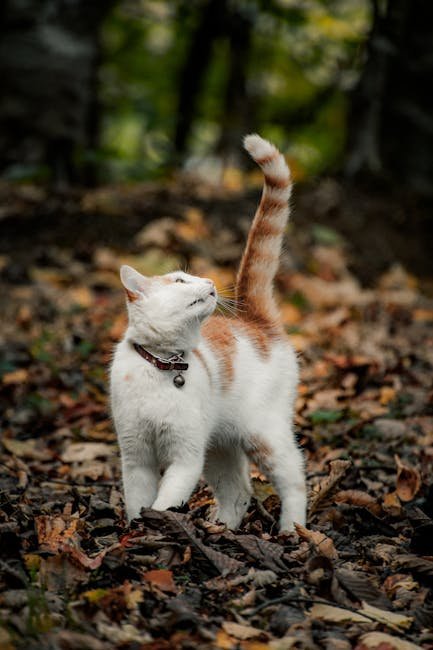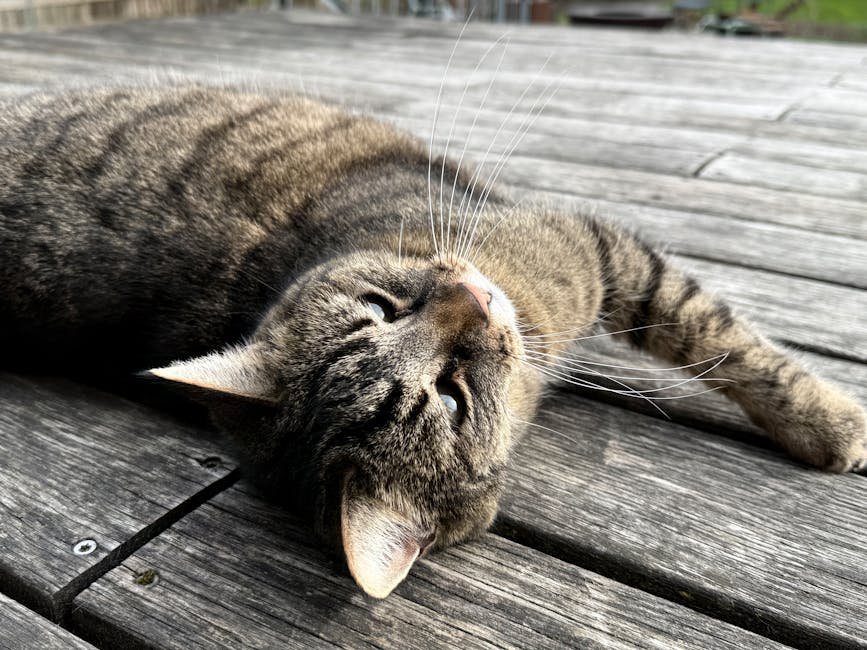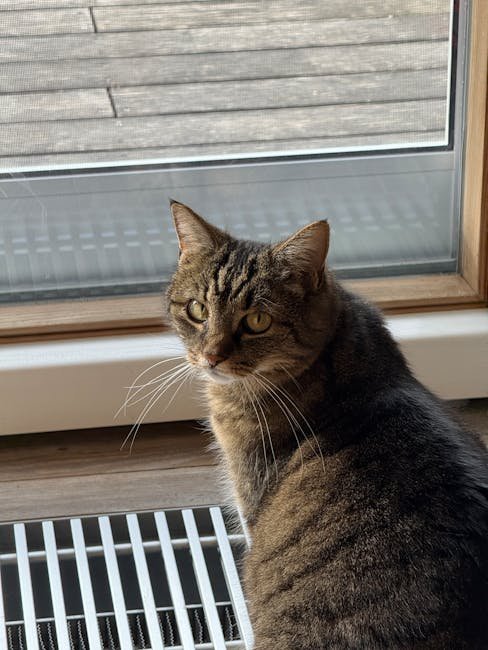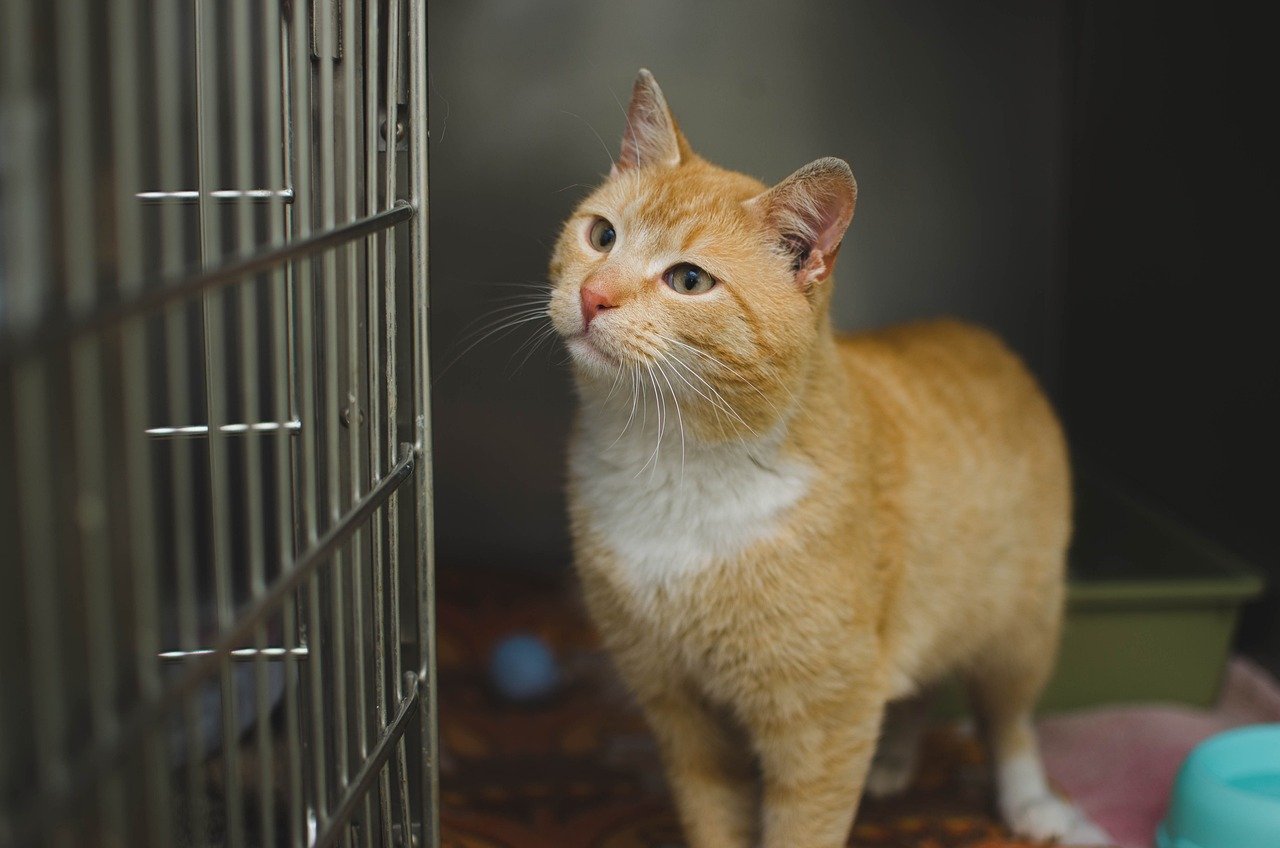Cats are curious creatures, often exploring every nook and cranny of their environment. However, this curiosity can expose them to various allergens that can affect their health. As a caring cat owner, understanding how to protect your furry friend from these environmental allergens is crucial. In this article, we’ll explore practical steps and tips to ensure your cat’s safety and comfort.
Understanding Environmental Allergens

Environmental allergens are substances in the environment that can cause allergic reactions in both humans and animals. For cats, these allergens can be found indoors and outdoors, including pollen, dust mites, mold, and even certain cleaning chemicals. Recognizing the common allergens is the first step in safeguarding your cat’s health. By being aware of these potential threats, you can take proactive measures to minimize your cat’s exposure.
Identifying Allergy Symptoms in Cats

Cats can’t tell us when they’re feeling under the weather, so it’s important to recognize the signs of allergies. Common symptoms include sneezing, coughing, itching, and red or watery eyes. In some cases, you might notice your cat grooming excessively or developing skin irritations. If you observe these symptoms, it is advisable to consult your veterinarian for a proper diagnosis and treatment plan. Early detection can prevent more serious health issues down the line.
Keeping Your Home Allergen-Free

Creating an allergen-free environment for your cat starts at home. Regularly vacuuming and dusting can significantly reduce dust mites and other allergens. Consider using air purifiers to filter out pollen and mold spores, especially during peak allergy seasons. Additionally, using hypoallergenic cleaning products can help prevent your cat from coming into contact with harmful chemicals. These simple changes can make a big difference in your cat’s comfort and well-being.
Choosing the Right Cat Litter
The type of cat litter you use can also impact your cat’s exposure to allergens. Opt for unscented, dust-free litters to minimize respiratory irritations. Some cats may also be allergic to certain materials in the litter, so experimenting with different types can help you find the best fit for your feline companion. Remember, a clean litter box is not only pleasant for your cat but also reduces the risk of allergen build-up.
Proper Ventilation and Air Quality

Good air quality is essential for reducing allergens in your home. Ensure proper ventilation by opening windows when possible and maintaining your HVAC system. Regularly changing air filters can also help trap allergens before they circulate in your living space. Fresh air not only benefits your cat but also creates a healthier environment for everyone in the household.
Bathing and Grooming Your Cat

Regular grooming can help remove allergens from your cat’s fur. Bathing your cat with a gentle, hypoallergenic shampoo can wash away pollen and dust that may have settled on their coat. If your cat is not fond of baths, consider using grooming wipes as an alternative. Regular brushing can also help reduce hair shedding, which can carry allergens throughout your home.
Outdoor Precautions for Allergic Cats

If your cat enjoys outdoor adventures, be mindful of the allergens they might encounter. Keeping your garden free of pollen-heavy plants and regularly mowing the lawn can reduce pollen exposure. After outdoor playtime, wipe your cat’s paws and coat with a damp cloth to remove any allergens they may have picked up. These small steps can help your cat enjoy the outdoors without the discomfort of allergies.
Diet and Nutrition’s Role in Allergies

A balanced diet plays a significant role in supporting your cat’s immune system. Providing high-quality, nutrient-rich food can help your cat better cope with allergens. Some cats may benefit from a diet that includes omega-3 fatty acids, known for their anti-inflammatory properties. Consult your veterinarian to determine the best diet plan for your cat’s specific needs.
Regular Veterinary Check-Ups

Routine veterinary visits are essential in managing your cat’s allergies. Your vet can provide valuable insights into your cat’s health and offer treatments like antihistamines or allergy shots if necessary. Regular check-ups also allow for early detection of any potential health issues, ensuring your cat receives the best care possible.
Flea Control and Its Importance
Fleas are not only a nuisance but can also trigger allergic reactions in cats. Implementing a regular flea control regimen can prevent infestations and reduce the risk of flea allergies. There are various options available, including topical treatments and oral medications. Discuss with your veterinarian to determine the most effective flea control method for your cat.
Managing Stress and Environmental Changes

Stress can exacerbate allergy symptoms in cats. Providing a stable and comfortable environment can help reduce stress levels. If changes are unavoidable, such as moving or introducing a new pet, try to make the transition as smooth as possible. Creating safe spaces and maintaining a routine can help your cat adjust more easily.
Recognizing Food Allergies

In some cases, environmental allergens may coincide with food allergies. If you suspect your cat has a food allergy, consult your veterinarian for guidance on conducting an elimination diet. Identifying and eliminating the offending ingredient can alleviate your cat’s symptoms and improve their overall health.
Understanding Seasonal Allergies

Just like humans, cats can suffer from seasonal allergies. Pay attention to patterns in your cat’s symptoms, as they may align with certain times of the year. During peak allergy seasons, take extra precautions to minimize your cat’s exposure to allergens. Adjusting your cleaning routine and limiting outdoor time can help manage seasonal allergies effectively.
The Role of Supplements in Allergy Management

Certain supplements can support your cat’s immune system and reduce allergy symptoms. Omega-3 fatty acids, probiotics, and antioxidants are known to have beneficial effects. However, always consult your veterinarian before introducing any new supplements to your cat’s diet to ensure their safety and efficacy.
Using Natural Remedies for Allergies
Some cat owners prefer natural remedies to manage their cat’s allergies. Herbal treatments, such as chamomile or calendula, may offer relief for skin irritations. Essential oils, when used correctly, can also provide a soothing effect. It’s important to research and consult with a veterinarian before using natural remedies to ensure they are safe for your cat.
Creating a Safe Sleeping Environment

Your cat’s sleeping area should be free of allergens to ensure a restful sleep. Wash bedding regularly with hypoallergenic detergents and avoid placing the bed near open windows during pollen-heavy seasons. A clean and comfortable sleeping space contributes to your cat’s overall well-being and reduces allergy symptoms.
Monitoring Your Cat’s Behavior

Paying attention to your cat’s behavior can provide valuable insights into their health. Changes in eating, grooming, or activity levels may indicate allergy-related discomfort. Keeping a journal of your cat’s behaviors and symptoms can help you track patterns and communicate effectively with your veterinarian.
Educating Family Members and Guests

Everyone in your household should be aware of your cat’s allergies and the measures you are taking to protect them. Educate family members and guests about the importance of keeping certain areas clean and avoiding bringing in potential allergens. Teamwork and communication can create a safer environment for your cat.
Recognizing When to Seek Professional Help

While many allergies can be managed at home, some cases may require professional intervention. If your cat’s symptoms worsen or don’t improve with home treatments, it’s crucial to seek veterinary help. Early intervention can prevent more serious health issues and ensure your cat receives the best care possible.
Building a Long-Term Allergy Management Plan

Creating a long-term allergy management plan tailored to your cat’s needs is essential for their health and happiness. Regularly reassess and adjust your strategies as needed, keeping your veterinarian informed of any changes. With dedication and care, you can provide a comfortable and allergen-free environment for your beloved feline companion.
Hi, I’m Bola, a passionate writer and creative strategist with a knack for crafting compelling content that educates, inspires, and connects. Over the years, I’ve honed my skills across various writing fields, including content creation, copywriting, online course development, and video scriptwriting.
When I’m not at my desk, you’ll find me exploring new ideas, reading books, or brainstorming creative ways to solve challenges. I believe that words have the power to transform, and I’m here to help you leverage that power for success.
Thanks for stopping by, Keep coming to this website to checkout new articles form me. You’d always love it!





